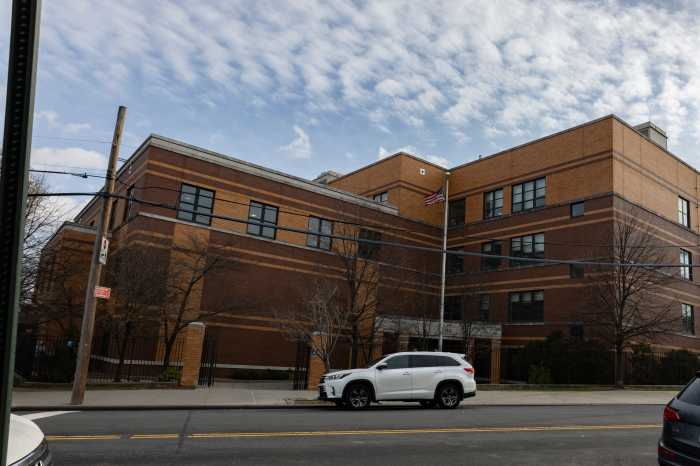Since the passage of the Deficit Reduction Act (DRA), which took effect February 8, 2006, it has become more difficult for potential nursing home residents to qualify for Medicaid benefits.
The law makes it impossible to use so called “rule of half” planning, whereby a Medicaid applicant can protect approximately one-half of his/her assets even when nursing home care is needed immediately. Rule of half planning involves the gift of one-half of an individual’s resources, while retaining the other half to pay the nursing home privately during the Medicaid period of ineligibility.
Under the DRA, rule of half planning cannot be done, because the Medicaid ineligibility period now will not start to run unless the individual is institutionalized and has assets below the Medicaid resource level, currently only $4,200 for an individual.
Based upon recent fair hearing decisions, however, it now appears that there is a way to protect approximately one-half of an applicant’s assets even when he/she is already in a nursing home and needs long-term care. This is through the use of a promissory note or annuity plan.
The plan contemplates that the applicant gifts part (usually about one-half) of his/her assets, and makes a loan with the other part, to be paid back pursuant to a promissory note. According to the DRA, the promissory note must: (i) be actuarially sound (the term cannot exceed the lender’s life expectancy); (ii) provide for payments in equal amounts with no deferral payments and no balloon payments; and (iii) prohibit the cancellation of the balance upon the death of the lender.
In the Matter of the Appeal of Anna M., an Albany County hearing recently decided the issue of whether Medicaid’s denial of the application due to excess resources was correct. The applicant loaned $44,000 and executed a promissory note wherein the borrower agreed to pay back the full amount plus five percent (5%) interest for 6 months.
The applicant’s attorney argued that the promissory note was incorrectly classified as an available resource. He maintained that the note did not violate any applicable laws, especially the DRA. He relied on the criteria contained in the DRA and further asserted that the note was a prudent financial investment, providing for an above-market rate of return, which was needed to pay the Appellant’s nursing home expenses. The attorney also argued that the note was not a resource because it was “non-negotiable” due to its lack of value on the open market.
The agency’s decision was reversed because, based upon a review of relevant laws, rules, regulations and policies, it was determined that the applicant did not make a gift, i.e., the loan was extended for fair market value. It was decided that the note had no value on the open market and that the Medicaid applicant received full value in exchange for the transfer of funds. Two other hearings, Matter of Geraldine A. and Matter of Mary K., with similar circumstances were held on the same day and decided in favor of the applicant.
As exemplified by the above-discussed cases, it is important to do proper planning should nursing home care be required. Advance planning is certainly preferred, but these cases show that even at the last minute, it is usually not too late to protect assets.
Ronald A. Fatoullah, Esq., CELA is the principal of Ronald Fatoullah & Associates, a law firm that concentrates in elder law, estate planning, Medicaid planning, guardianships, estate administration (probate) trusts and wills. The firm has offices in Forest Hills, Great Neck and Brooklyn, NY. Mr. Fatoullah has been named a “fellow” of the National Academy of Elder Law Attorneys is a former member of its Board of Directors, and chairs its Public Relations Committee. He chairs the legal committee of the Alzheimer’s Assn. Legal Committee and also serves on the Executive Committee of the Elder Law Section of the New York State Bar Association. Mr. Fatoullah is a co-founder of the Senior Umbrella Network of Queens, and currently serves on its Board of Directors. This article was written with the assistance of Stacey Meshnick, Esq., who supervises the Medicaid Department at the firm. The firm can be reached by calling 718-261-1700, 516-466-4422 or toll free at 1-877-ELDER-LAW or 1-877-ESTATES.
Ronald A. Fatoullah, Esq., CELA is the principal of Ronald Fatoullah & Associates, a law firm that concentrates in elder law, estate planning, Medicaid planning, guardianships, estate administration (probate) trusts and wills. The firm has offices in Forest Hills, Great Neck and Brooklyn, NY. Mr. Fatoullah has been named a “fellow” of the National Academy of Elder Law Attorneys is a former member of its Board of Directors, and chairs its Public Relations Committee. He chairs the legal committee of the Alzheimer’s Assn. Legal Committee and also serves on the Executive Committee of the Elder Law Section of the New York State Bar Association. Mr. Fatoullah is a co-founder of the Senior Umbrella Network of Queens, and currently serves on its Board of Directors. This article was written with the assistance of Stacey Meshnick, Esq., who supervises the Medicaid Department at the firm. The firm can be reached by calling 718-261-1700, 516-466-4422 or toll free at 1-877-ELDER-LAW or 1-877-ESTATES.



































